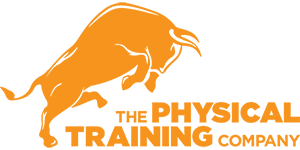THE RELATIONSHIP BETWEEN STRENGTH TRAINING & WEIGHT LOSS
When it comes to weight loss, many people immediately think of cardio exercises such as running or cycling. While cardio is certainly important for overall fitness and weight loss, strength training should not be overlooked. Strength training not only helps to build muscle, but it also has a significant impact on resting metabolic rate and can aid in weight loss.
Building Muscle Through Strength Training
As mentioned, building muscle can help to boost your resting metabolic rate. This is because muscle tissue is more metabolically active than fat tissue. In other words, it takes more energy for the body to maintain muscle than it does for fat. This means that the more muscle you have, the more calories you'll burn at rest. A study published in the American Journal of Clinical Nutrition found that the resting metabolic rate of individuals with higher muscle mass was significantly higher than those with lower muscle mass.
The Impact of Muscle on Resting Metabolic Rate
One of the most obvious benefits of strength training is that it helps to build muscle. When you lift weights or use resistance bands, you are causing small tears in the muscle fibers. As the muscles repair themselves, they grow stronger and larger. This increase in muscle mass can help to boost your resting metabolic rate, which is the number of calories your body burns at rest. A study published in the Journal of Applied Physiology found that resistance training can increase muscle mass, resulting in an increase in resting metabolic rate.


Strength Training and Weight Loss
Strength training can be an effective tool for weight loss because it helps to increase muscle mass and boost resting metabolic rate. When you burn more calories at rest, it becomes easier to create a calorie deficit, which is necessary for weight loss. Additionally, strength training can also help to improve body composition. As you lose weight, you may also lose muscle mass. Strength training can help to preserve muscle mass, which can help to ensure that the weight you lose is mostly fat. A study published in the Journal of Obesity found that resistance training was more effective at reducing body fat and increasing muscle mass than cardio alone.
The Role of Protein in Strength Training
Strength training puts stress on the muscles, which triggers muscle protein synthesis. This process is essential for muscle growth and repair. In order for muscle protein synthesis to occur, the body needs an adequate supply of amino acids, which are the building blocks of protein. In order to support muscle growth and repair, it is important to consume enough protein. Adults should aim to consume 0.8 grams of protein per kilogram of body weight per day. A study published in the Journal of the International Society of Sports Nutrition found that consuming protein before and after strength training can support muscle growth and repair.
Incorporating Strength Training into Your Workout Routine
Incorporating strength training into your workout routine can be done in a variety of ways. You can use free weights, resistance bands, or weight machines. It is important to start with a weight that is appropriate for your fitness level and gradually increase the weight as you become stronger.
Aim for two to three strength training sessions per week, focusing on different muscle groups each time. It is also important to vary the exercises to target different muscle groups and keep your body challenged.
In Conclusion
Strength training is essential for weight loss as it helps to build muscle, boost resting metabolic rate, improve body composition and support muscle growth and repair. Incorporating strength training into your workout routine can help to ensure that the weight you lose is mostly fat, and not muscle. It is important to consult with a healthcare professional or a registered personal trainer to develop a workout plan that is suitable for your individual needs and goals. Don't forget to include protein in your diet to support muscle growth and repair.

